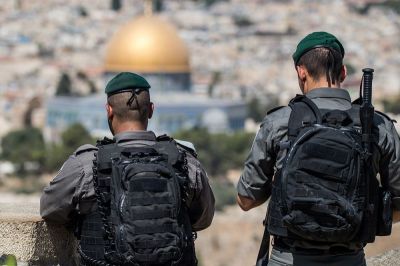Instability in Israel could jeopardize few remaining Christians in region

As a Syrian Christian who had suffered under Assad's regime, I knew firsthand what it meant to speak out against authoritarian rulers in the Middle East. I was imprisoned and tortured for merely expressing my disagreement with Assad's government, and to my surprise, the community I belonged to was solidly opposed to me.
I was angry and bitter against my fellow Christians at first, but I eventually understood their unwillingness to change the existing status quo. Even though many of these authoritarian regimes had damaged Christians economically, most Levantine Christians wanted to keep the status quo.
In Syria, for example, Christians owned the majority of private schools, banks, and sports clubs. All other properties, yet had been nationalized since Abdul Nasser ruled Syria, and later by the Baath party, which now rules Syria. Despite this, Christians were firm supporters of the regime and have always opposed change, because history had taught them that any change would result in Christians being the first to be targeted.
Christians had always been disarmed in the Levant, and their only protection came from the ruling regime. Any revolutionary movement that attempted to change the status quo had targeted Christians because they were the low-hanging fruit and were incapable of defending themselves.
The Palestinian Christians, however, were the exception among all Levantine Christians. They publicly criticized Israel and advocated for the abolition of the Jewish state, despite the fact that if this occurred, the Christians of Palestine would be the first to suffer.
The Palestinian Christians as most of the Christians in the region, are treated unequally and face many challenges posed by Islamists in the West Bank and Gaza. Hamas and the Palestinian authority itself was responsible for many human rights violations against Christians that included land theft, denial of employment, and economic boycotts. In Gaza and other cities controlled by the PA, Muslims who have converted to Christianity are at the greatest risk. They are often left defenseless against cruelty by radical Islamists who murdered some converts or indigenous Christians.
In the west bank, in cities controlled by PA, the numbers of Christians has dropped dramatically. Bethlehem for example witnessed a sharp demographic Christian-Muslim shift as the Christian population went from an 80% majority in 1950, to approximately a 40% minority in 2000. It is estimated that for the past decade over 1,000 Christians have been emigrating from the Bethlehem area annually. Today, an estimated 10,000 Christians only remain in the city.
In the PA territories as elsewhere in the region, Islamists are obsessed with building mosques taller than churches to demonstrate that Christians were inferior to them. During Christian holidays, thugs would gather in front of churches and begin catcalling Christian women.
Despite this, many Palestinian Christian influencers and intellectuals continued to complain publicly about Israel's treatment of them. Ignoring the numerous challenges, the ordinary Christians face by radical Islamic organizations that are the mortal enemy of all Levantine Christians.
Dr. Yohanna Katanacho, a Nazareth Evangelical College professor and an outspoken Arabic speaking Christian figure who opposes Israel and argues that Israel treats Christians as second-class citizens, is unlikely to discuss why the number of Christians is dwindling in PA-controlled areas or Gaza, or what kind of future awaits Christians if Israel is destabilized by the actions of Hamas and Islamist terrorists.
The amount of freedom of expression that Dr. Yohanna Katanacho has as an Israeli Christian citizen and professor at an Israeli institution stands alone as evidence of the contrast between the condition of Christians in Israel and elsewhere in the Middle East region.
Yes, Arabic-speaking Christians endure hardships in Israel, but their condition is far better than in other Middle Eastern countries. The reality is that Christians in the Levant in general have never faced any existential threats from Israelis or Jews. All the massacres and genocides that decimated the number of Christians were conducted by Muslim mobs, not Jews, as all Christians are aware.
Much of the strong Arabic speaking Christian intellectuals’ hostility to Israel was motivated by the Islamic persecutions they endured. These Christians intended to demonstrate to Muslims that they shared an enemy and that they could be more royal than kings.
Despite their efforts, however, Palestinian Christians have never been treated equally by organizations such as Hamas. Many Palestinian Muslim officials rejoiced when Erdogan converted Hagia Sophia into a mosque, despite the fact that Hagia Sophia was more important to Levantine Christians than Al Aqsa was to Muslims. Many Palestinian Muslims refused to mourn Shireen Abu Akleh, the Palestinian deceased journalist who spent her life opposing Israel because she’s not a Muslim.
The answer for improving the life of Christians in Israel is not to support the rhetoric of Islamist organizations and militias like Hamas and to collaborate with their sympathizers like the CAIR organization in the United States.
Maintaining stable and robust American support for Israel, as well as fostering the advancement of democratic norms in Israel, is the only way to ensure an Israeli system that treats everyone with fairness and equality, including Christians.
A fragile US backing for Israel would only lead to another civil war in the Middle East, which may jeopardize the few Christians left in the region.
Hadeel Oueis is a Philos Project Senior Fellow.





















